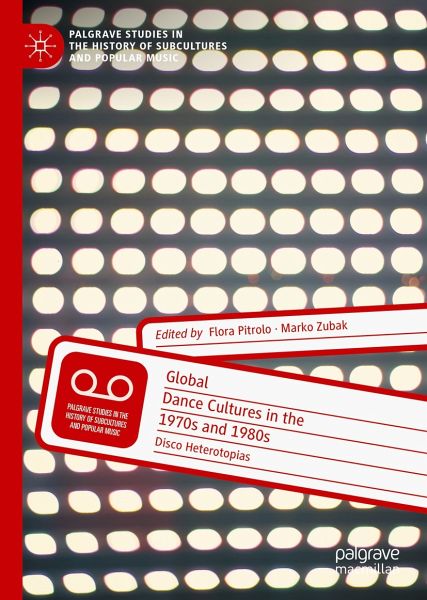
Global Dance Cultures in the 1970s and 1980s (eBook, PDF)
Disco Heterotopias
Redaktion: Pitrolo, Flora; Zubak, Marko
Versandkostenfrei!
Sofort per Download lieferbar
112,95 €
inkl. MwSt.
Weitere Ausgaben:

PAYBACK Punkte
56 °P sammeln!
This book explores some of disco's other lives which thrived between the 1970s and the 1980s, from oil-boom Nigeria to socialist Czechoslovakia, from post-colonial India to war-torn Lebanon. It charts the translation of disco as a cultural form into musical, geo-political, ideological and sociological landscapes that fall outside of its original conditions of production and reception, capturing the variety of scenes, contexts and reasons for which disco took on diverse dimensions in its global journey. With its deep repercussions in visual culture, gender politics, and successive forms of popu...
This book explores some of disco's other lives which thrived between the 1970s and the 1980s, from oil-boom Nigeria to socialist Czechoslovakia, from post-colonial India to war-torn Lebanon. It charts the translation of disco as a cultural form into musical, geo-political, ideological and sociological landscapes that fall outside of its original conditions of production and reception, capturing the variety of scenes, contexts and reasons for which disco took on diverse dimensions in its global journey. With its deep repercussions in visual culture, gender politics, and successive forms of popular music, art, fashion and style, disco as a musical genre and dance culture is exemplary of how a subversive, marginal scene - that of queer and Black New York undergrounds in the early 1970s - turned into a mainstream cultural industry. As it exploded, atomised and travelled, disco served a number of different agendas; its aesthetic rootedness in ideas of pleasure, transgressionand escapism and its formal malleability, constructed around a four-on-the-floor beat, allowed it to permeate a variety of local scenes for whom the meaning of disco shifted, sometimes in unexpected and radical ways.
Dieser Download kann aus rechtlichen Gründen nur mit Rechnungsadresse in A, B, BG, CY, CZ, D, DK, EW, E, FIN, F, GR, HR, H, IRL, I, LT, L, LR, M, NL, PL, P, R, S, SLO, SK ausgeliefert werden.












